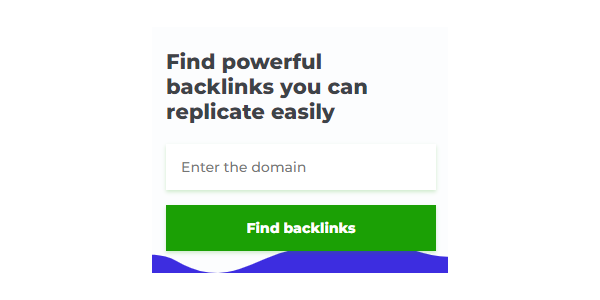
The length of blog posts has been a topic of disagreement ever since search engines were introduced to the Internet.
Employing a phrase made popular by Google, the reply to that question is “it is contingent.”
The two main variables to consider when deciding how long your posts should be are:
- Subject matter.
- Searcher intent.\
The desirable size of a blog piece about capturing the ideal selfie will not be the same as the desirable size for a blog post on the development of the digital camera.
Why? At the outset, one topic needs to have more information than the other in order to give a full answer.
Regardless of one’s opinion of the nuances of taking selfies, there is more to discuss pertaining to the invention of the technology which makes such activity achievable.
Searcher intent should be taken into account when determining the length of a blog post. Do they prefer a brief or lengthy article?
It would seem that the individual interested in the origin of digital photography would be in search of more thorough information than somebody searching for directions on taking selfies.
Although the world’s attention span seems to be shrinking, long-form writing still performs outstandingly on search engines.
Even though longer content typically performs better in search results, short content can still achieve high rankings. One isn’t necessarily better than the other.
Countless elements are taken into account when determining rankings for search results.
Is article length one of them? If so, what is the ideal word count?
Let’s look at what the statistics say.
Statistics Don’t Lie
Statistics provide a sound foundation, yet they are apt to be altered to suit the purpose.
Let us be clear right away: no matter how long it is, there will always be good material and bad material.
Research looking into hundreds or thousands of pages of material, like the one previously mentioned, likely does not determine which content is great, which is poor, which is mediocre, and so forth.
It investigates the connection between the length of a piece of writing and its possible quality, as judged by simple practicality.
I won’t disagree with the fact that material that is concise and to the point is easier to read and takes less time.
Does the single word response provide the user with the answer they sought? Of course, there are times when a single-word reply may suffice, however, it probably won’t be of quality.
A single response with neither any explanation or sourcing, which is ordinarily not sufficient for Google to decide if a content is valid, useful and educational.
There are certainly succinct answers which could result in obtaining the featured snippet on Google, sometimes referred to as Position Zero.
In addition, interesting content may take on many shapes; it can be fascinating and usually simple to understand due to the origin, vivid media, and well-planned structure/arrangement.
Google is searching for substantial data, verification, and authenticated facts from reliable sources regarding any topic. It is apparent that content that is longer in length typically comprises of the following components.
A substantial factor of why articles, essays, and other forms of extended writing perform better in organic search results compared to concise compositions.
In accordance with a HubSpot research project that was conducted within the year 2021, it is recommended that blog posts be composed of between 2,100 and 2,400 words to obtain the best results with regards to search engine optimization.
Bloggers and web-developers typically consider 200 to 500 words to be the gold standard for blog posts; however, this is much longer.
Depending on the question being asked, the search results displayed on the first page may not mostly be blog-style material. However, the info that end-users and Google view as useful may contain blogs that contain organized and thoughtful information that is likely to respond to a search.
Your target should be to form ideas regarding the material to be featured on your web page’s blog and other written online material.
What Does Google Say About Blog Post Length?
Google is adamant that the number of words used in a page does not affect its position in search engine rankings.
A complete episode of SEO Mythbusting is focused on the idea of in-page material.
Martin Splitt of Google has confirmed that how many words are on a page is not thought of as a factor when deciding where it should appear in search rankings.
He is implying that Google does not work by calculating the amount of words on a page to decide its worthiness.
A page containing 1,000 words is not necessarily judged as having a better quality than one containing 500 words because the amount of content is not the only measure of quality.
Whenever Google employees are asked something about the number of words, they always provide the same response. It is a subject that appears quite frequently.
John Mueller of Google was asked about something on Twitter. He states:
“Word count is not indicative of quality. Certain pages feature an abundance of meaningless words. Some pages have very few words that are essential and highly relevant to searches. You should have an understanding of your material and be able to determine whether or not it requires further elaboration.
It’s essential to not interpret the remark to mean that you are able to post only a minimum amount of content since Google does not pay attention to the number of words per page.
The number on its own means nothing to Google. Google’s algorithm attempts to meet the desires indicated by the search, and hence it might generate a link to a longer article instead of a short one.
Quality Over Quantity: Don’t Focus On Article Length
An excessive focus is placed by many on the typical word count of articles as well as the mistaken belief that a certain number of words must be included in every page to be highly ranked.
It’s essential to be thorough, yet a 2,500-word essay that focuses solely on the main character’s poor hairstyle and inappropriate words repeated multiple times throughout is probably not an article worth posting.
Undoubtedly there were other aspects and scenes that determined the quality of the film. Talk about them. Expand on real situations with reactions and in-depth explanations.
How blog post length varies across industries
It is without question that blogs can be effective for corporations, however it is essential to comprehend what is expected for posts for each market and form before establishing one.
Gaining an insight into the nature of every sector will furnish you with an improved comprehension of the various approaches your enterprise can use to produce and publish texts that will help to augment conversion rate, bring in more revenue, increase recognition of your brand, and strengthen SEO ranking.
It is essential to remember that becoming successful in any type of business cannot be achieved merely by writing lengthy pieces that can appear on the top of a Google search; rather, in order to achieve success, one has to create engaging material which can assist readers with their queries.
To begin writing articles, it is essential to conduct research on a topic, making use of resources like Google Trends and Semrush Keyword Planner. Google Trends can display popular searches, while the Semrush Keyword Planner is a formidable SEO tool that can find exciting topics, assess keywords, analyze competition and provide connected words.
Before delving into how to devise and produce awesome content further on, let’s first look into a range of approximate word amounts for a selection of industries such as marketing, food, and travelling.
Marketing
Above all else, let’s focus on marketing, which is of importance to everyone gathered here.
A large amount of evidence supports the notion that long-form content is the best option for marketing purposes.
Our posts generally have more than 2,000 words and we see higher engagement and better results with the search engine optimization when we have the longer posts. The standard post in marketing usually consists of 2,500-3,000 words.
It is essential that you concentrate on crafting detailed, content-rich weblogs with more than average word counts in order to be recognized in the super competitive market.
Fashion
Illustrating how not all sectors are suitable for extended content pieces, the fashion sphere is an ideal demonstration.
This field’s academics and followers have a strong emphasis on aesthetics. Therefore, when crafting your blog pieces, you don’t have to create overly long posts, but they should contain interesting visuals.
Fintech
Even though the financial technology sector is known to be heavily reliant on data, it is still essentially a content-heavy industry. The blog posts within this field are often data-focused, but that doesn’t take away from the overall content present. Many experts suggest that the ideal length for an article is between 2000 and 2150 words.
The competitiveness of SEO standings in this sector has risen in the past few years, driving companies to make sure their blog articles contain an adequate amount of words in order to make them stand out.
Navigating the intricate details of fintech can be challenging, necessitating a thorough conversation with plentiful data-based visuals like graphs.
Blogging using the “ultimate guide” approach works really well within the cryptocurrency market, particularly because it is still brand-new and it provides a great chance to establish trust and expertise.
Tech
We are deeply entrenched in the technology business, and have put together numerous blog posts on behalf of our technology customers.
Our target is to have a piece of writing between 1200-1500 words, the suggested length in this business.
Many of our tech blogs contain lengthy word counts, sometimes reaching 2000 or more, which we break up into concise paragraphs and feature bullet points, making it simple for readers to understand. Images are also included to help enhance the content.
Pieces of writing that focus on technology usually delve into the features and advantages of gadgets, with visuals that back up their capabilities.
How-to guides are especially valuable for SaaS systems, providing visual depictions of the platform to back up the instructions.
Healthcare
The healthcare sector generates a revenue of an astonishing $1.66 trillion every year.
Due to its immense magnitude, the industry is highly competitive, making it much more challenging for smaller firms to stand out.
Writing content for the healthcare sector entails crafting detailed blog posts, which should contain a considerable amount of information. Aim for a minimum word count of roughly 2,000-2,150 words while constructing the piece.
One way to stand out among your competitors in this field is obtaining references from authoritative sources – such as professionals and industry leaders – which could increase the public’s trust in your work and allow for the possibility of getting press attention from those you mention.
Manufacturing
It is advisable to strive for a word count between 1700 and 1900 words when writing in this industry.
Why is this slightly lower than some others? The manufacturing industry does not heavily utilize content marketing.
At the moment, there is a lack in this industry to focus on manufacturing-related writings. Using a platform like Semrush, you can use the information regarding the leading content, the competition, and associated words to guide your opinion.
Travel
This sector has received a boost lately, creating those attention-grabbing pics of sunsets, ocean views, and city skylines that you’d find all over Instagram.
Most travel blogs have around 1500 to 2000 words, interlaced with amazing photographs that will inspire anyone to use an online flight booking service right away.
Nomadic Matt reliably produces posts, each with a word count ranging between one and three thousand.
Retail
There has been a tremendous rise in e-commerce over the last few years, but that growth has been even more extraordinary this calendar year due to the global pandemic.
The retail sector is wide-reaching and includes many different types of materials, usually more visual than textual.
Therefore, approximately 1,500 – 1,700 words should be your goal, which should be supplemented with videos and pictures to show the advantages of the goods.
Food & Hospitality
Another huge industry that’s growing every day.
It is beyond the imagination that sometimes a profession is created out of posting pictures of attractive meals and food on the internet. Fifty and 15 years ago, discussing one’s opinions on food was common, but the idea of making a career out of it would not be considered.





